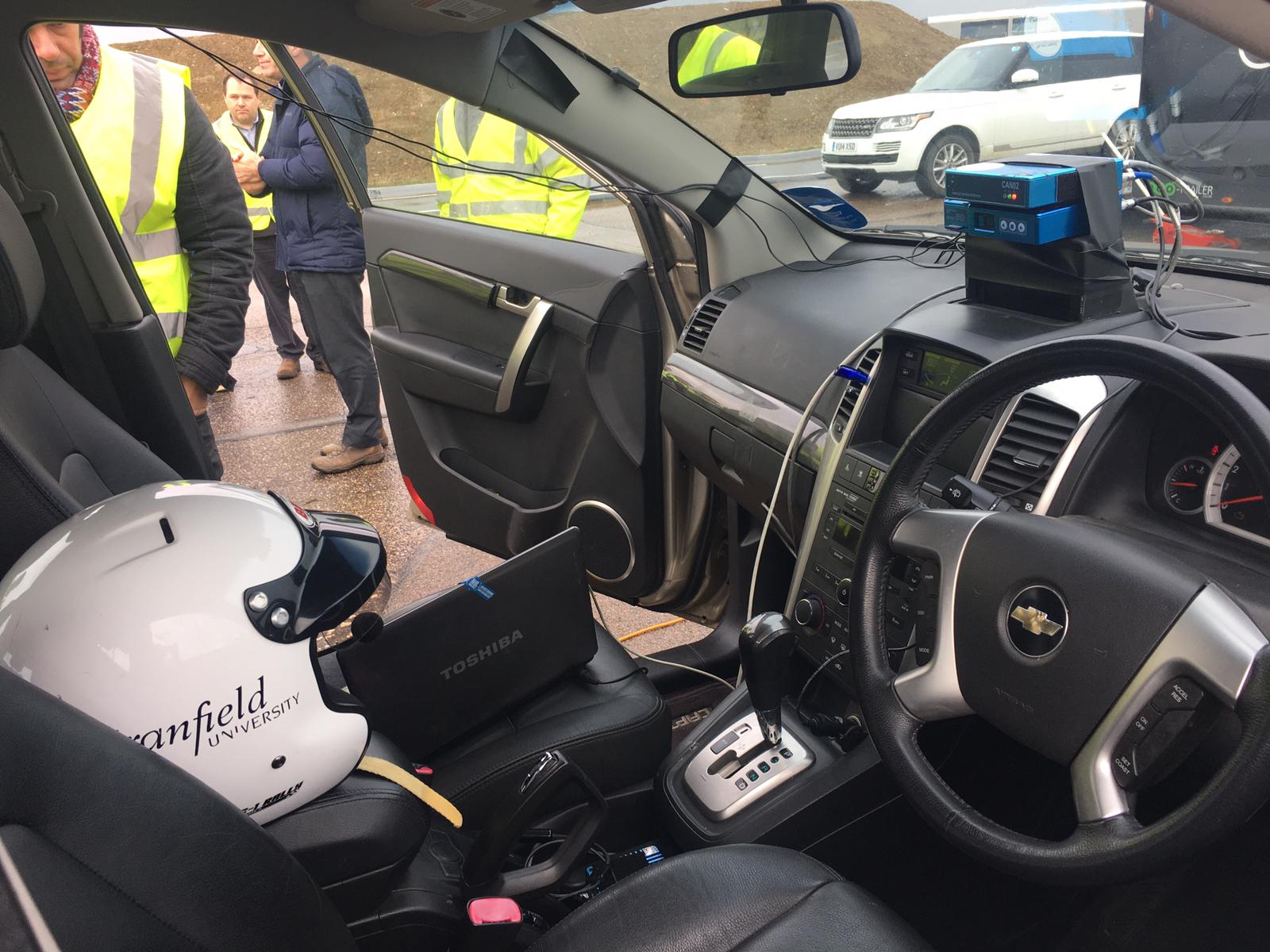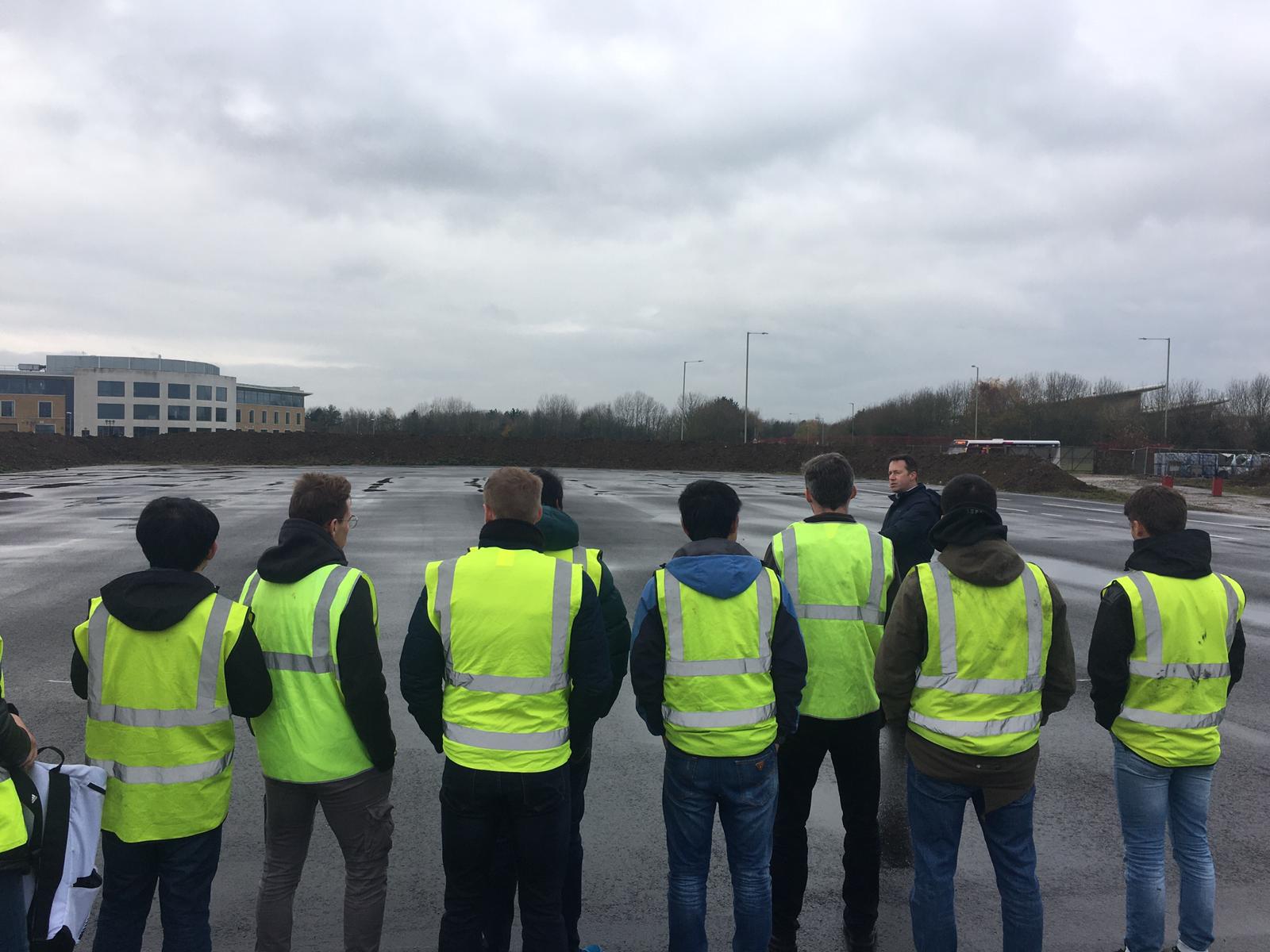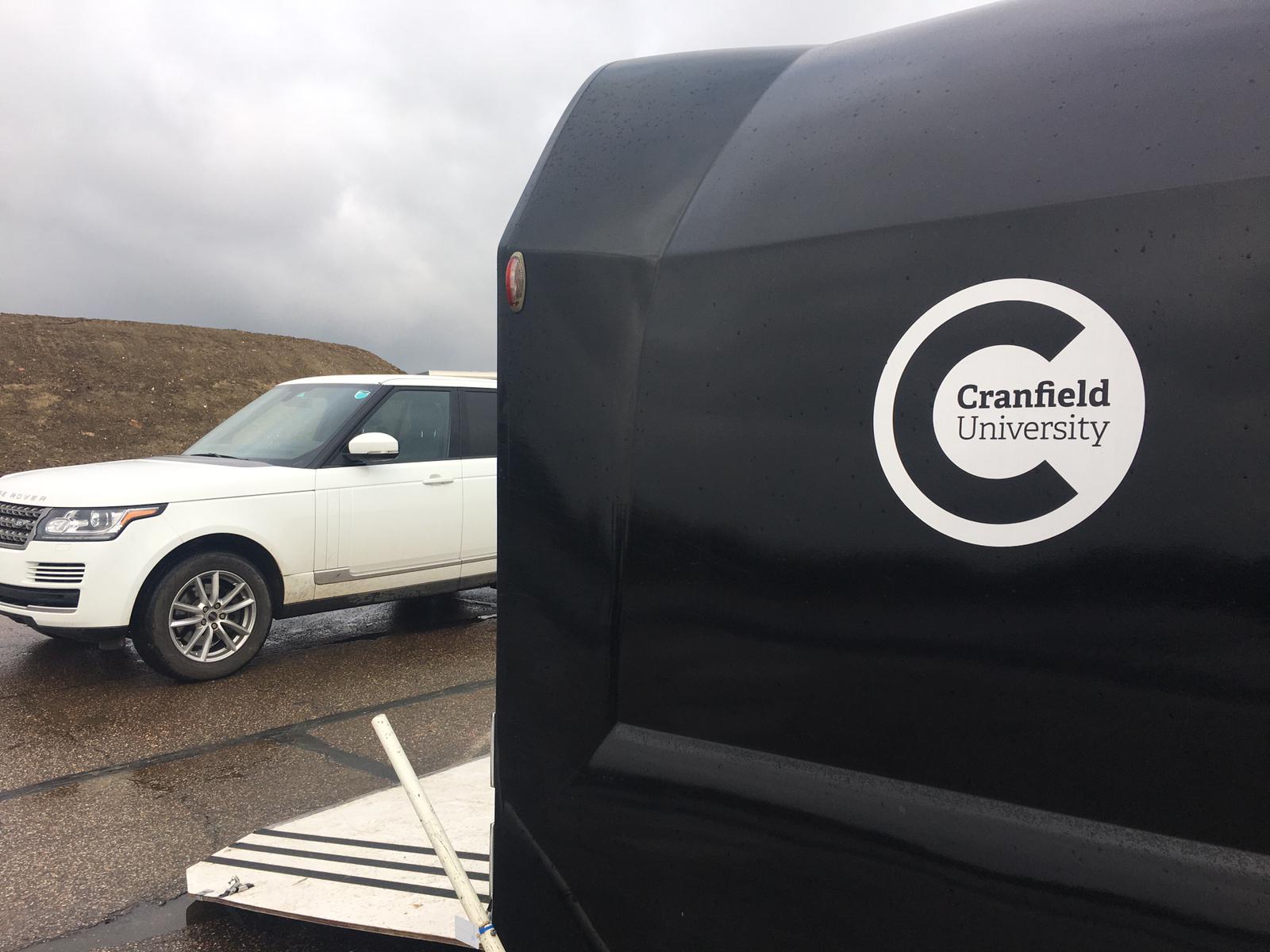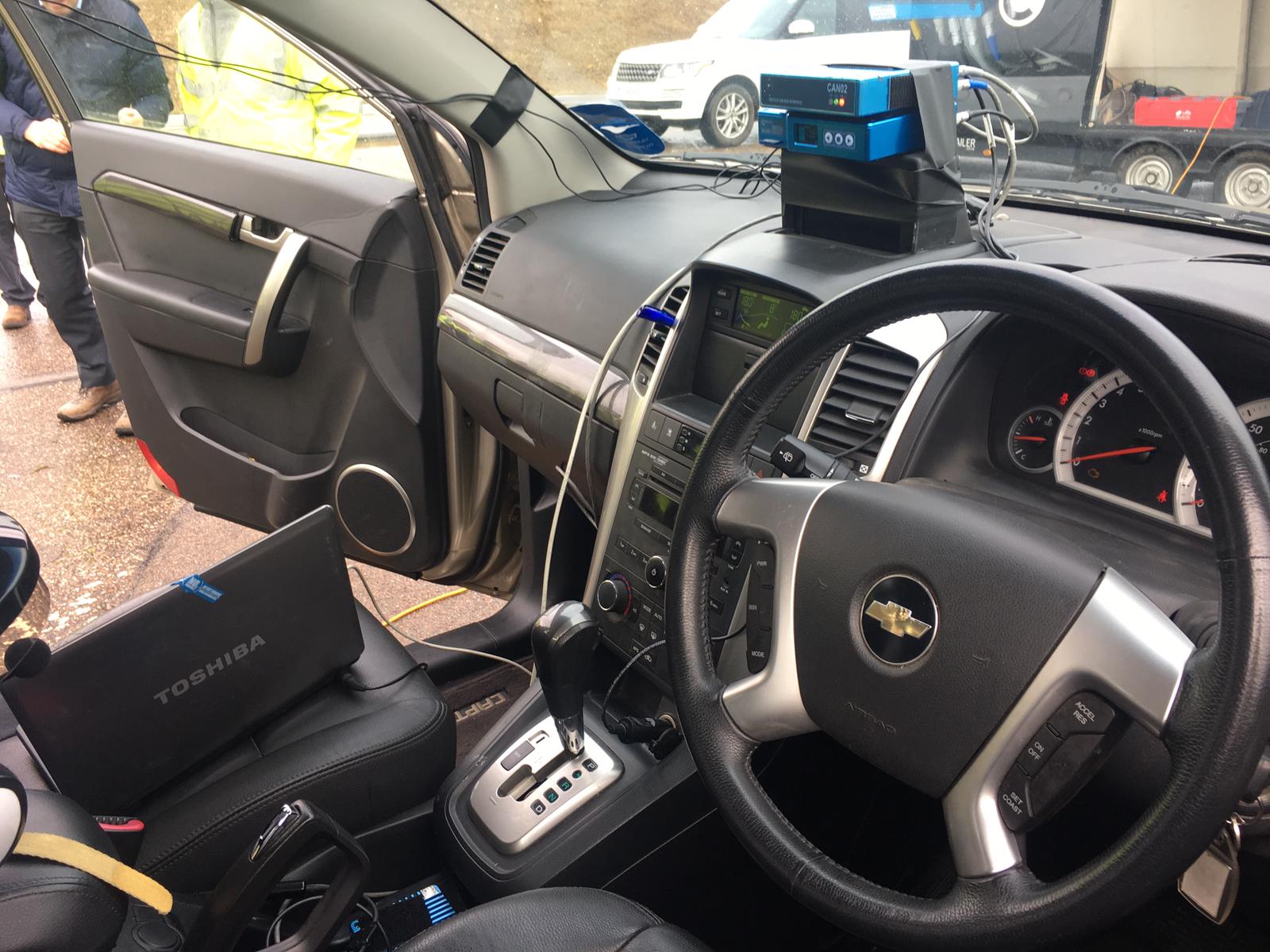How practical sessions are revving up our automotive MScs
07/01/2020

Here at Cranfield, we pride ourselves on the strong practical vein of our courses. We understand that true knowledge comes not just from listening, reading and writing, but from doing.
Research shows that practical leaning boosts individuals’ know-how and proficiency and makes them feel that their education is more relevant – moreover, it has been shown to improve self-esteem in the workplace, perhaps because individuals feel better equipped to overcome challenges.
But what does this look like in practice and what do our students really think about this approach?

Real-life research on the automotive MScs
During the last week of November, students studying our Automotive Engineering and Automotive Mechatronics MScs took part in two practical sessions, as part of their Vehicle Dynamics module. The first session was a handling test, which took place on our Multi-User Environment for Autonomous Vehicle Innovation (MUEAVI) road, and the second session was a hands-on look at suspension designs in our mechatronics laboratory.
Describing the first practical session, Dr Efstathios Velenis said: “The vehicle handling practical at MUEAVI aims at demonstrating current approaches of vehicle instrumentation and standard techniques of objective evaluation of vehicle handling performance. The test procedure includes a variety of dynamic and steady-state cornering manoeuvres. The tests are repeated for different configurations of the suspension.

“Post-processing of the data is presented and the effects of the different suspension modifications on the cornering performance of the vehicle are studied and discussed in class. The focus is on the interpretation of the observed behaviours based on the theory covered in the module.”
This was a jam-packed day that saw students actively involved in the sessions (despite the bleak weather!) and allowed them to apply their learning in an everyday setting.
MSc student Georges Sayes commented: “These practical sessions offer a different approach to studying, which is better than a purely theoretical one. We can really understand the different technologies that are employed and the benefits of each of them.
“Learning only the theory does not allow you to really understand the fundamental functioning of different suspension designs, for example.
“During the handling session outside, we could apply what we had learned the day before. By seeing how the vehicle could perform on the track, we were able to validate our calculations on real vehicles.
“Through these sessions, we get closer to the automotive industry and acquire a better and deeper understanding.”
Another MSc student, Sreeram Santosh Vasamsetty, said: “Cranfield offers a huge number of practical sessions compared to other universities and these sessions are really impressive and industry-orientated. We deal with real-life situations.
“AVEC has great facilities and, for me, the most interesting part of the day was the vehicle handling session.
“Automotive companies want to hire students from Cranfield because we’ve dealt with real-life scenarios.”

Our automotive students have plenty more to look forward to throughout the rest of the academic year, including continuing to work on their group design project. Next year also marks the 60th anniversary of our Advanced Vehicle Engineering Centre (AVEC), so it’s an exciting time to be studying an automotive MSc at Cranfield.
Categories & Tags:
Leave a comment on this post:
You might also like…
Keren Tuv: My Cranfield experience studying Renewable Energy
Hello, my name is Keren, I am from London, UK, and I am studying Renewable Energy MSc. My journey to discovering Cranfield University began when I first decided to return to academia to pursue ...
3D Metal Manufacturing in space: A look into the future
David Rico Sierra, Research Fellow in Additive Manufacturing, was recently involved in an exciting project to manufacture parts using 3D printers in space. Here he reflects on his time working with Airbus in Toulouse… ...
A Legacy of Courage: From India to Britain, Three Generations Find Their Home
My story begins with my grandfather, who plucked up the courage to travel aboard at the age of 22 and start a new life in the UK. I don’t think he would have thought that ...
Cranfield to JLR: mastering mechatronics for a dream career
My name is Jerin Tom, and in 2023 I graduated from Cranfield with an MSc in Automotive Mechatronics. Originally from India, I've always been fascinated by the world of automobiles. Why Cranfield and the ...
Bringing the vision of advanced air mobility closer to reality
Experts at Cranfield University led by Professor Antonios Tsourdos, Head of the Autonomous and Cyber-Physical Systems Centre, are part of the Air Mobility Ecosystem Consortium (AMEC), which aims to demonstrate the commercial and operational ...
Using grey literature in your research: A short guide
As you research and write your thesis, you might come across, or be looking for, ‘grey literature’. This is quite simply material that is either unpublished, or published but not in a commercial form. Types ...






